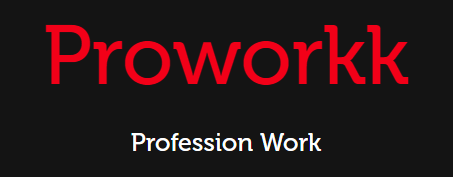Profession: Product Designer
Experience: 8 years
Location: Shanghai, China
My Personal Experience:
My journey as a product designer began unexpectedly during my college years. Although my initial interest lay in a different field, I found myself drawn to design through various extracurricular activities. Following my passion, I delved into self-learning, participated in design competitions, and built a portfolio showcasing my skills and creativity.
After graduation, I interned at a renowned design agency, which further sharpened my abilities and exposed me to real-world design challenges. Through perseverance and dedication, I gradually carved a niche for myself in the industry.
Over the past eight years, I have had the privilege of working on numerous projects ranging from mobile apps to consumer electronics. Each project has been a stepping stone, enabling me to refine my craft, embrace new technologies, and collaborate with talented individuals.
The Hard part I feel about this profession as per my experience till now:
Being a product designer is a thrilling journey, but it also comes with its fair share of challenges. One of the most common questions aspiring designers have is how to become a product designer without a degree. While a formal education can provide a solid foundation, it’s not the only path to success in this field. I believe that practical skills, continuous learning, and a strong portfolio are equally important in establishing yourself as a competent product designer.
Another aspect that often perplexes newcomers is how to become a good UI/UX designer. UI and UX design play a vital role in creating user-friendly and visually appealing products. To excel in this area, it’s crucial to gain a deep understanding of user psychology, learn design principles, and stay updated with the latest industry trends and tools.
Additionally, many people wonder how one can become a product designer. It’s a multifaceted profession that requires a combination of skills, including research, ideation, prototyping, and collaboration. Building a solid foundation in design thinking, honing technical skills, and seeking opportunities to work on real-world projects can pave the way to becoming a successful product designer.
Things I find interesting or feel “happy” about this profession are:
Being a product designer in a vibrant city like Shanghai has been a truly enriching experience. One of the most fascinating aspects of this profession is the opportunity to shape the way people interact with technology and everyday objects. I find it incredibly fulfilling to solve complex problems and create intuitive designs that enhance users’ lives.
Moreover, as a product designer, I’ve had the privilege of working on diverse projects that allowed me to explore various industries and domains. This exposure has broadened my horizons and deepened my understanding of different cultures, user behaviors, and market dynamics. It’s truly rewarding to see how design can bridge gaps and create meaningful connections between people and products.
Pros And Cons which I feel about this profession:
Pros:
- Open-mindedness: Being a product designer encourages continuous learning and staying open to new ideas and perspectives.
- Creativity: This profession offers endless opportunities to unleash your creativity and think outside the box.
- Learning and growth: Every project presents a chance to learn and acquire new skills, ensuring personal and professional growth.
- Connectivity: Product designers have the privilege of collaborating with professionals from diverse backgrounds and disciplines, fostering a sense of connection and teamwork.
Cons:
- Deadlines: The pressure of meeting deadlines can be overwhelming, especially when juggling multiple projects simultaneously.
- Industry volatility: The design industry is constantly evolving, and keeping up with the latest trends and tools can be challenging.
- Balancing aesthetics and functionality: Striking the right balance between visual appeal and usability can sometimes be a delicate process, requiring meticulous attention to detail.
- Data-driven focus: While good design is paramount, the emphasis on numbers and statistics in decision-making can sometimes overshadow the value of innovative ideas.
My suggestions for newcomers in this profession:
For those aspiring to become product designers, here are a few suggestions based on my experience:
- Build a Strong Foundation: Gain a solid understanding of design principles, user-centered design, and usability. Invest time in learning design software and prototyping tools to enhance your skills.
- Embrace Continuous Learning: Stay updated with the latest trends, tools, and technologies in the field of product design. Attend workshops, conferences, and online courses to broaden your knowledge.
- Gain Practical Experience: Seek opportunities to work on real-world projects, either through internships or freelance work. Practical experience will not only strengthen your portfolio but also expose you to different design challenges.
- Network and Collaborate: Connect with other professionals in the industry, attend design meetups, and engage in online design communities. Collaborating with like-minded individuals can lead to valuable insights and growth opportunities.
In conclusion, my journey as a product designer has been filled with both challenges and accomplishments. It’s a profession that requires dedication, creativity, and a passion for problem-solving. Despite the hard work and occasional setbacks, the joy of creating impactful designs and witnessing their positive influence on users makes it all worthwhile. If you have the drive and determination to pursue a career in product design, the possibilities are endless, and the rewards are immeasurable.
